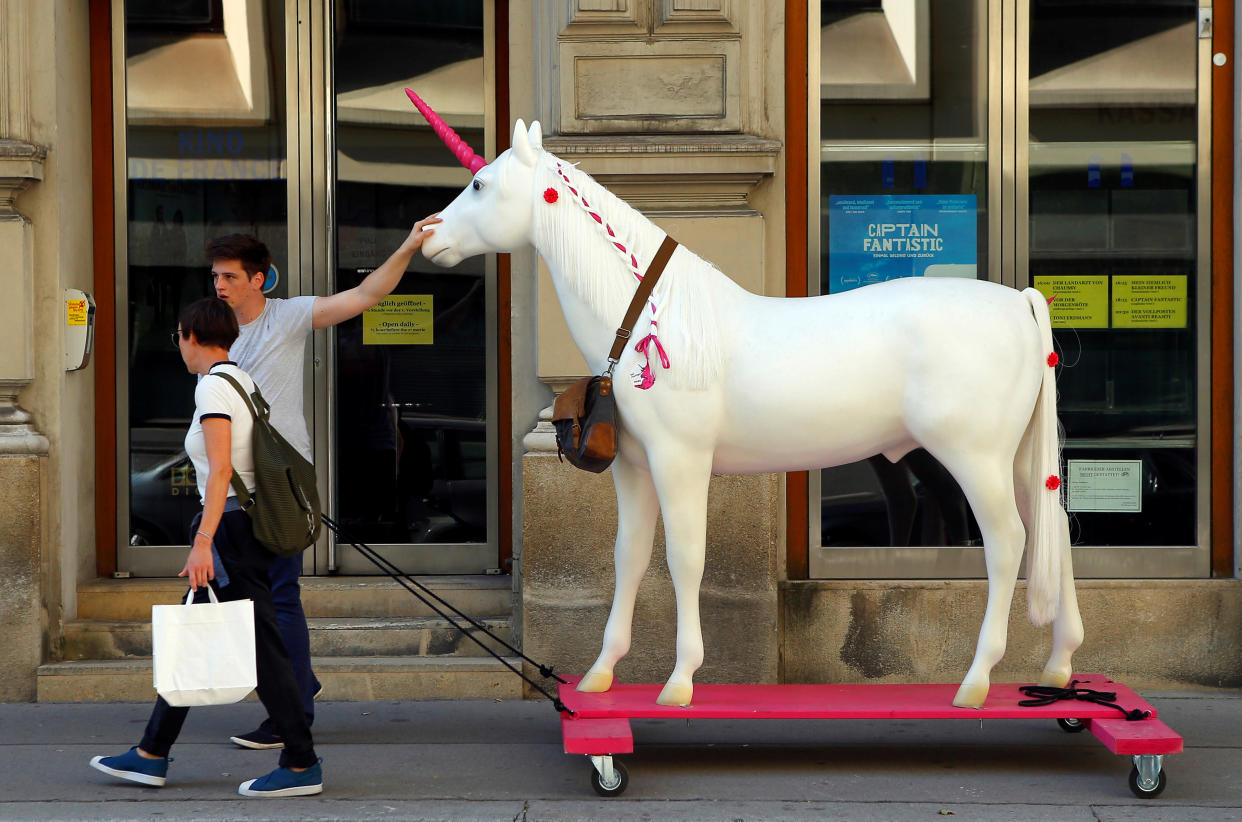Boris and Hunt's Brexit plans are 'unicorns with a lick of paint,' says JP Morgan

The Brexit plan supported by both Boris Johnson and Jeremy Hunt “fails to put forward ideas that are likely to work in either practical or political terms,” according to JP Morgan.
Analysts at the investment bank said the two Prime Ministerial candidates’ quest for a Brexit withdrawal agreement without the “Irish backstop” was like hunting a unicorn.
“A unicorn with a lick of paint is still a unicorn,” analysts Malcolm Barr and Allan Monks wrote in a note sent to clients on Friday.
Foreign Secretary Jeremy Hunt and Boris Johnson are both in the final race to become the next leader of the Conservative Party, and by extension the next Prime Minister.
Both candidates have taken an increasingly hard-line view on Brexit as the campaign has gone on. Both have pledged to reject the current withdrawal agreement due to its inclusion of the so-called “Irish backstop” provision.
They have instead vowed to replace the border deal with “alternative arrangements” largely based on a report from the Alternative Arrangements Commission, a group of 42 MPs. The report, published last month, argued that technological solutions can be used to solve the border issue.
“In our view, it fails to put forward ideas that are likely to work in either practical or political terms,” JP Morgan’s analysts wrote.

Barr and Monks said that proposals put forward by the AAC involve Ireland or the EU accommodating the UK with little in the way of return for them. In fact, accommodating the UK could invite more risks.
“The basic problems of ensuring the goods and services crossing the border in these zones meets EU regulatory requirements remains, as does the zones’ possible use by those who wish to circumvent those controls if such checks are removed,” the analysts wrote.
“If the UK does a trade deal with the US, and chlorinated chicken and hormone-treated beef become available in the UK, what prevents those products crossing into the single market via those “special economic zones”?”
JP Morgan is not the first organisation to pick holes in the AAC proposals. The British Irish Chamber of Commerce said the proposals “lack credibility” and “asks a lot of EU negotiators for an outcome that would ultimately be worse for businesses on the island of Ireland.”
Barr and Monks write: “To put it bluntly, there is nothing in the AAC report that would encourage the EU to shift its position. That will not stop those who are pro-Brexit claiming there are “abundant technical fixes” and referring to the 200-plus pages of the report as indicative of fresh new thinking.”
The backstop explained
The “Irish backstop” is a safeguard within the withdrawal agreement meant to prevent a hard border between Northern Ireland and the Republic of Ireland, which will remain within the EU. The provision requires the UK to adhere to EU standards until a solution can be found to the border issue.
“Opponents of the backstop argue that the implied loss of independence on UK trade could last indefinitely, as the backstop would apply “unless and until” other arrangements made it unnecessary,” Barr and Monks wrote.
The backstop has made May’s deal wildly unpopular and both Hunt and Johnson have pledged to scrap it.


